- Home
- Warhammer 40K
Apocalypse - Josh Reynolds Page 10
Apocalypse - Josh Reynolds Read online
Page 10
‘Oh, very well,’ she murmured.
‘Thank you,’ Duran said. He looked at Holmere. ‘As of this moment, your authority over this world has been supplanted by my own, as per Ecclesiarchial Dictate Signum Crucis. You will acknowledge this.’ Duran waited.
Holmere frowned, likely trying to recall what that particular dictate entailed. He glanced at his clique, as if considering his next move. None of them were soldiers – Duran held the reins too tightly for that. But a fair few thought themselves warriors. Though the Adeptus Ministorum frowned on duelling, it happened, especially among those families tied to the Ecclesiarchy by blood. They were touchy, these holy bloods. Their ties to the system’s rulers made them arrogant, as well.
Thankfully, most of them had eyes only for the hololithic projections that danced across the air before them. The air chimed and a scattering of pict-displays, sent from an external augur array, flickered into view. Cern saw the city, a spread of hab-blocks and towering structures that spread down one slope of an immense crater. She’d been born in a hive. Pergamon, with its sloped contours and spillage of streets, had taken some getting used to. The city spread like grey mould, clinging to the curve of the crater, and stretching downwards to the vast lake that had formed at the bottom. The water from that lake fed the city, and several others besides.
Beyond the city, the night sky had turned a dull, angry orange. Slashes of heat marred the horizon, and servitors intoned impact coordinates. One stiffened in its alcove and blurted a warning. ‘Impact at grid coordinates alpha-zeta-epsilon imminent. Imminent. Imminent. Impact in twenty… nineteen… eighteen…’
Instinctively, Cern looked up. ‘I don’t see it,’ she began, but she heard the great glass dome flex and whine in its frame. Cracks appeared, running across it like spiderwebs. A moment later, the building shook as a dull boom echoed through the chamber.
‘Impact registered,’ the servitor said in the silence that followed.
‘Ground all air traffic,’ Duran said to an aide. ‘Anything still in the sky in the next hour won’t be there for long. Tell Klostmeyer to ready the anti-air batteries.’
Holmere spluttered. ‘You can’t do that. How are we supposed to leave the city?’ He indicated his coterie with an outraged gesture.
‘There’s always the grav-train,’ Cern said.
Holmere grimaced. The grav-train was clunky and archaic – a relic from more primitive times. The network stretched across the planet, but was currently running over capacity, thanks to the tide of panic sweeping the world. People were running, seeking sanctuary or a way off-world.
‘You won’t be leaving the city, lord deacon,’ Duran said, fixing Holmere with a stern eye. ‘Pergo is the capital – the centre without which this world will not hold. You are the moral and spiritual authority, as ordained by Cardinal-Governor Eamon. Your place is here, among your people.’
Holmere stared at him. ‘What?’
‘You heard him, lord deacon.’ Cern gestured and her bodyguards closed the chamber doors and positioned themselves to intercept any attempt at flight. ‘The hour of your glory has come around. You will need to prepare speeches, sermons, a triumphal address.’
‘Then… victory is-is certain?’
‘All things are certain when one has faith, my lord,’ Duran said. He gestured to two of his officers. ‘Escort the lord deacon and his attendants to the bunkers below. See that they are comfortable. I will join you directly.’
Cern’s bodyguards opened the doors at her nod, and she watched as the lord deacon was escorted out. ‘Very neat,’ she said. Duran accepted the compliment with a nod.
‘Once he’s safely in the bunker he can panic to his heart’s content.’
‘You’ll have to kill the silly bastard before this is through – you know that, don’t you?’ She looked at him. ‘Otherwise he’ll attempt to undermine you once he figures out how precarious his position has become.’
Duran looked away. ‘I honestly don’t think we have that long.’ He looked up at the display. ‘They’re not in position for a siege. They’re ignoring the major landing zones and concentrating on the cities themselves. This is an assault. I don’t think they care about taking this planet – or this city – in one piece. They’re after something else.’
Cern’s hand fell to her power maul. A sudden premonition struck her. She looked at Duran and he nodded. ‘Yes. I think they’ve come for the Apostolic Libraria,’ he said.
‘Then they know,’ she said softly. ‘Have you alerted Almace?’
‘Our astropaths were struck dumb and blind a few hours ago, and the inter-system vox-relay is experiencing interference.’ Duran sighed and lifted his sword, studying his reflection in its polished length. He lowered it and looked at her. ‘The first of their ships have entered the gravity well – or soon will. All that remains is to do as we have sworn and pray the Emperor guides our hands.’
Cern hesitated, then clasped his shoulder. ‘Die well, Duran.’
‘You too, Sister. If the worst comes to pass…’
‘I know what must be done.’ Cern turned away. ‘I pray only that I have the strength to do it.’
‘Status,’ Amatnim murmured. Around him, the Glory Eternal rocked, as if in the throes of passion. And perhaps it was. For a vessel like this, war was as love. Alarms blared and the voices of the crew, human and otherwise, rose in accompaniment.
‘We’ve entered the planet’s gravity well. Shields holding,’ one of the Word Bearers stationed on the observation deck replied, his helm’s vox-grille turning his words into a growl. Then, with obvious glee, he added, ‘Acryx’s Sigh wasn’t so lucky – she’s gone.’
‘That was…’ Amatnim struggled to recall the name of the frigate’s captain. ‘Eran Bucco? A brother of the Third Hand, wasn’t he?’
‘Aye, my lord – and a more pestiferous jackal there never was.’
‘Speak not ill of the glorious dead, brother – whatever cause they might give you,’ Amatnim said with mild reproach. He peered at the warrior. ‘Kelim, isn’t it? You were also of the Third Hand, I recall.’
Kelim nodded. ‘Briefly, my lord.’ The way he said it implied that he did not much miss those days. Things had changed in the years since the Warmaster had cracked open the Eye of Terror and cast forth the light of truth across the galaxy. The old ways, already fraying, had unravelled completely. Brotherhoods had become hosts and hosts had shattered into brotherhoods once more, as the in-fighting of the Dark Council grew ever fiercer. The old ways of waging war were no longer applicable in a galaxy that was coming undone.
Klaxons sounded as the deck shuddered like a wounded beast. Slaves scurried in all directions, attempting to douse fires or carry orders to duty stations. Word Bearers bellowed litanies of war down below, on the command deck. On the viewscreen, the void was aflame.
Ships burned in the black. Not so many as it seemed at first glance, but enough to make Amatnim repress a wince. Their target’s orbital defences were stronger than he’d anticipated – or maybe the fleet was simply less disciplined than he’d hoped.
Antiquated orbital defence platforms unleashed salvoes of torpedoes into the teeth of their advance. Escorts intercepted most of these, however unwittingly. The other worlds all had some minor defences – platforms of laser batteries or single-launch plasma lances, more useful against space debris or lone pirate vessels than an enemy fleet.
But this was different. Deadly. Beams of silent destruction glittered in the dark as his fleet returned fire. The slaves wired into the vox-alcoves rasped reports from his captains – damage estimates, firing solutions, manoeuvres, demands for action. Warriors like Kelim filtered the noise from the information, keeping him up to date.
Through it all, Amatnim watched, standing at the edge of the observation deck, riding the rhythm of battle. The gods’ voices were clearest here, in these moments, when it was all balance
d on a knife-edge. One lucky shot, one unforeseen fluctuation in the Glory Eternal’s shields, and his glories would be nothing more than a forgotten promise. The gods were fickle, and ever-hungry for twists and turns in the lives of those who entertained them.
‘Status,’ he said again. He didn’t turn. Vibrant hues stretched across the viewscreen, as a defence platform was reduced to debris. It tumbled away, caught by Pergamon’s gravity and drawn planetwards like a fiery comet.
‘The Hawk of Sicarius and Night’s Angel are moving into launch position at grid-points eight and thirty-seven, respectively,’ Kelim said. ‘The Slaughterqueen is taking heavy fire from the second quadrant defence platforms – she can’t break the line.’
‘Divert Olympia’s Bane and the Ucephalot – have them run interference. We need the Slaughterqueen’s landing bays more than we need them.’
‘Should I tell them that?’ There was an undercurrent of dark amusement in Kelim’s voice. Amatnim considered it, but only for a moment.
‘No. They understand their place in this design, as do we all.’
Amatnim crossed his arms. Void war had never greatly appealed to him. It lacked the immediacy of ground operations and required more forethought. On the viewscreen, his fleet encircled the planet, attacking from all directions – or so it seemed to the casual observer. In truth, it was a precise ballet of calculation and statistical analysis. Every ship was but one part of the great mechanism of the fleet. Only when all acted in accordance was success assured.
He watched as a frigate tumbled in its death throes. Its plasma drive sputtered silently, venting the vessel’s lifeblood into space. It was still intact, however, and he made a note to organise salvage teams. The orbital dockyards here were small – insignificant, compared to those of Sicarius – but use could be had of them, if they survived.
Prompted by the thought, he glanced at Kelim. ‘Status of the dockyards?’
‘Unknown,’ Kelim said. ‘We have landed troops in the docking bays, but given the confusion, it is hard to get an accurate report. I can try to make contact.’
‘No. Leave it for now. No need to distract them. If it is the will of the gods, they will be successful. If not – they won’t.’ Amatnim turned his attentions back to the battle. Ships forced their way through the storm of fire unleashed by the defence platforms and pierced the stratosphere. Landing troops was an imprecise business; there were too many variables. You had to breach a world’s gravity well, put yourself at its mercy and hope your vessel was strong enough to weather the inevitable ground-to-air flak. But it had to be done.
‘My lord, it is time.’
Amatnim turned to see Apis stepping up onto the observation deck. The other Word Bearer was every inch the soldier – his battered crimson battleplate was free of writing or sigils, save for the Legion symbol on one shoulder-plate. He had a modified, drum-fed boltgun slung under his arm from a heavy leather strap. Extra drums of ammunition hung from his heavy combat rig, alongside a sheathed knife and a number of grenades. He held his helm in one hand. His other rested atop his boltgun.
Apis’ features were covered in an intricate latticework of tattoos – Amatnim recognised them as lines taken from the sermons of Kor Phaeron. Apis was a blunt, plain-spoken Colchisian – one of the last of that generation of warriors who had followed Lorgar first through the desert, and then to the stars. He was loyal to the values that had carried them all so far – one of the few who had never questioned, even in his hearts, the path the Urizen had set them on.
Not a fanatic. Not a zealot. Simply a believer. Amatnim admired that. The manifold complexities of the universe were boiled down to utmost simplicity in Apis’ mind. The gods commanded, and he obeyed. Amatnim wished, on occasion, that he could share such an uncomplicated outlook. Instead, he was blessed – or cursed – with a higher understanding. Like Kor Phaeron, he saw the universe for what it was. He saw the mistakes, the cracks in the glass, and was driven to repair them.
‘Good,’ he said. He turned to Kelim. ‘You have command. Keep us in one piece if you would, brother.’
‘If the gods will it, my lord,’ Kelim said. ‘Gloria Aeterna, brothers.’
The ship shuddered around them as they descended into its bowels. Slaves ran to and fro on matters of urgency. The thunder of the gunnery decks and the howls of monstrous overseers reverberated through the corridors. Battle-servitors – crooked, insect-like machines infested with lesser daemons and dark technologies – hummed arrhythmically in their alcoves, awaiting the unlikely event of a boarding action. All was as it should be.
Lakmhu was awaiting them in the launch bay. ‘I detest gunships,’ the Dark Apostle said. ‘Too much can go wrong.’ His blade slaves crouched behind him, glaring balefully at any unwary enough to get too close to their master.
‘Feel free to stay behind, brother,’ Amatnim said. Around them, the bay was full of noise and confusion. Gunships of all shapes and sizes were being readied for launch by slaves and a paltry few servitors. Some of the gunships had been in the Legion’s service since Calth. Others had been scavenged from battles since, repaired and refitted and made ready for war.
‘You’d like that, wouldn’t you?’
‘I would,’ Apis said. Lakmhu spun, fixing the other Word Bearer with a glare.
‘Curb your tongue, Apis. You are barely an officer, and only by virtue of your hardiness. Do not presume to converse with us as equals.’
Amatnim clapped Apis on the shoulder-plate. ‘Apis has no equal, brother. He is without peer in the art of organised murder. Tell him about Conqueror’s Due, Apis, when we were with the Iconoclastic Brotherhood.’ Amatnim laughed. ‘Oh, how we made those great statues dance.’
Lakmhu snorted impatiently. ‘I have heard the story.’
‘Good stories deserve to be told more than once.’
‘As I said, I have heard it. We should use drop pods. It is more efficient.’
‘Were this a siege, I might. But this is a blitzkrieg, to borrow an antiquated term. A rapid strike, to cut the heart from the enemy.’ He looked at Apis. ‘We’ll need to be fast – don’t let them dig in. Mortal or no, those fanatics are tenacious. If they manage to fortify that structure, we could be days burning them out. And they’ll make us pay for every one.’
Lakmhu laughed. ‘Surely you are not frightened of a few mortal warriors?’
Amatnim smiled. ‘Have you ever fought the Battle Sisters, Lakmhu?’
‘No.’
Apis snorted and Amatnim quieted him with a gesture. ‘Ah. Then to answer your question, no, I am not frightened. I am, however, wary. They are skilled, zealous and lacking in even the rudiments of a sense of fear.’
‘A shame, then, that they serve a false god,’ Lakmhu said.
‘Yes.’ Amatnim turned to Apis. ‘Gather your cohort. I would have you with me when we land. We will strike for the library as soon as we reach the landing zone.’
Apis bowed his head. ‘Gloria Aeterna, my lord.’
‘Gloria Aeterna, brother.’
‘Unimaginative clod,’ Lakmhu said, as the other Word Bearer left. ‘Why you favour him I shall never understand.’
‘No, I don’t expect you will, brother. Are you certain you wish to accompany me with the first wave? That has never been your preference.’
‘It is not my preference now. But it must be done. I– what is that clamouring?’
Amatnim smiled. ‘Our slaves make ready for war.’
The gunships and assault landers had begun to load their cargoes. Hundreds of mortals climbed the boarding ramps to cram themselves into every available space. Those who survived the descent would join the attack.
Amatnim watched them board their landers with bemusement. The mortals were, for all intents and purposes, numberless. Culled from a thousand worlds as the Glory Eternal made its fiery pilgrimage across the galaxy, they were the remains o
f various revolutions and rebellions, of broken regiments and faith-blind cults. Thousands of soldiers, pilgrims and lunatics, bound to Amatnim’s will by their belief in the Dark Gods.
‘Chattel,’ Lakmhu said, as rank upon rank of mortal warriors climbed aboard a nearby landing barge. Some sang as they went. Others chanted and danced, spinning in tight circles or twitching and creeping in curious ways. Bells rang and cymbals clashed. Great staves topped by steaming censers were held aloft to sweeten the air. Interspersed in this ecstatic tide were islands of discipline, but they were few and far between.
‘Fellow travellers,’ Amatnim corrected. ‘They worship as we do and are blessed in their own ways. Their lives are a gift to us, brother, to be used in good cause.’ He gestured to the mortals. ‘Look at them, brother. Do you truly think that they are less faithful than we?’
‘They are chattel, Amatnim. Little souls, scuttling in the shadow of our greatness.’
‘All souls have their uses in the eyes of the gods, Lakmhu.’ Amatnim looked at him. ‘Or do you think your worth is greater than theirs?’
‘I am not so naive as to think the gods care for anything other than blood and souls,’ Lakmhu said piously. ‘Our glory is to serve them up both. Let others seek favour or claim the love of the gods. I am content to be faithful. To be a Bearer of the Word. It is our fate to serve the Pantheon and enact their will upon the universe. We shall spread the word of Lorgar from one side of the galaxy to the other.’
‘Yes. When do we plan on starting that particular crusade, brother?’ Amatnim laughed. ‘Because it seems to me that we are no longer at the forefront of the Long War, that others have supplanted us as we become veritable hermits.’
‘Speak clearly, brother.’
‘You know well enough of what – of whom – I speak. Erebus licks the Warmaster’s boots and hinders the efforts of his own brethren.’ He fixed Lakmhu with a steady eye. ‘Deny it if you like. I know the truth.’

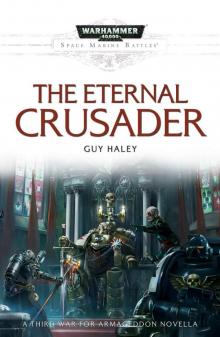 The Eternal Crusader - Guy Haley
The Eternal Crusader - Guy Haley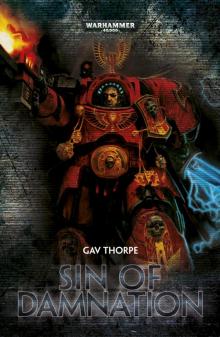 Sin of Damnation - Gav Thorpe
Sin of Damnation - Gav Thorpe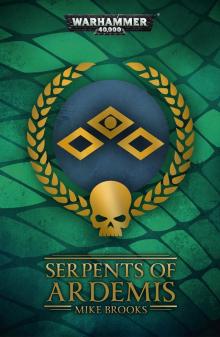 Serpents of Ardemis - Mike Brooks
Serpents of Ardemis - Mike Brooks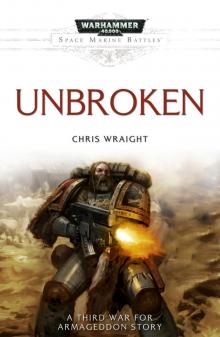 Unbroken - Chris Wraight
Unbroken - Chris Wraight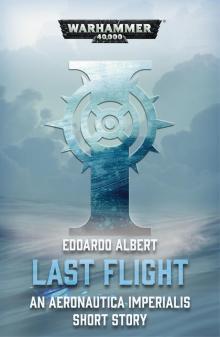 Last Flight - Edoardo Albert
Last Flight - Edoardo Albert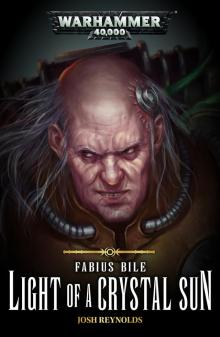 Light of a Crystal Sun - Josh Reynolds
Light of a Crystal Sun - Josh Reynolds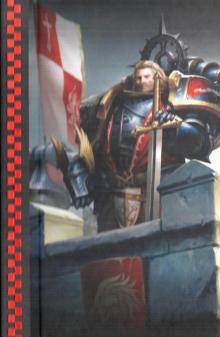 Lion El'Jonson- Lord of the First - David Guymer
Lion El'Jonson- Lord of the First - David Guymer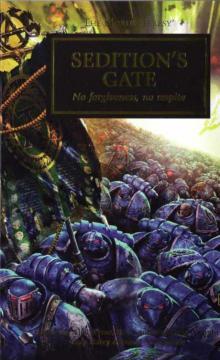 Sedition's Gate - Nick Kyme & Chris Wraight
Sedition's Gate - Nick Kyme & Chris Wraight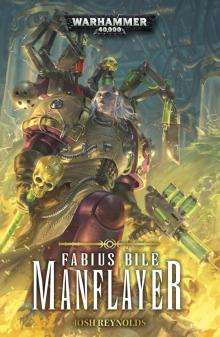 Manflayer - Josh Reynolds
Manflayer - Josh Reynolds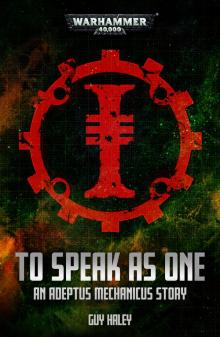 To Speak as One - Guy Haley
To Speak as One - Guy Haley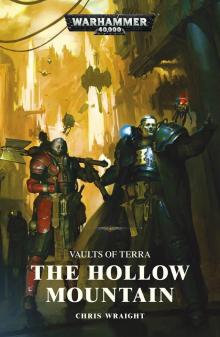 Vaults of Terra- The Hollow Mountain - Chris Wraight
Vaults of Terra- The Hollow Mountain - Chris Wraight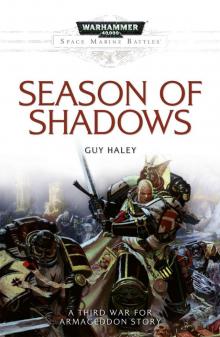 Season of Shadows - Guy Haley
Season of Shadows - Guy Haley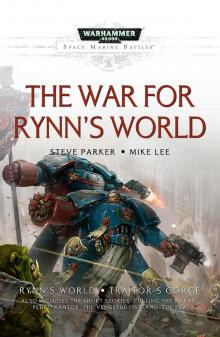 The War for Rynn's World - Steve Parker & Mike Lee
The War for Rynn's World - Steve Parker & Mike Lee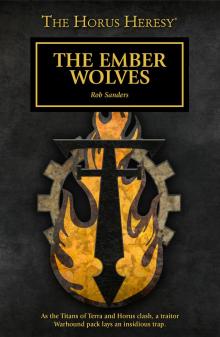 The Ember Wolves - Rob Sanders
The Ember Wolves - Rob Sanders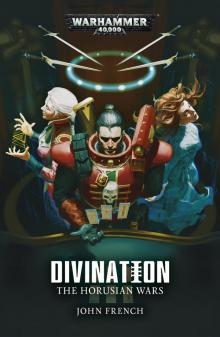 Divination - John French
Divination - John French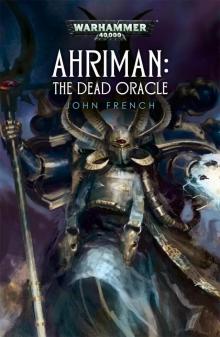 The Dead Oracle - John French
The Dead Oracle - John French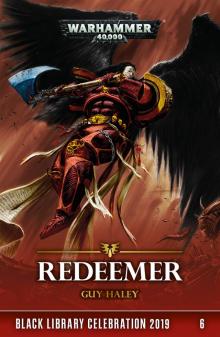 Redeemer - Guy Haley
Redeemer - Guy Haley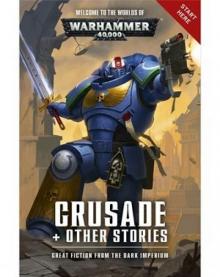 Crusade & Other Stories - Dan Abnett Et Al.
Crusade & Other Stories - Dan Abnett Et Al.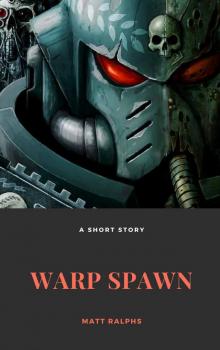 Warp Spawn - Matt Ralphs
Warp Spawn - Matt Ralphs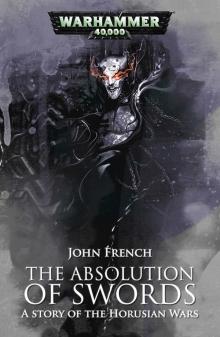 The Absolution of Swords - John French
The Absolution of Swords - John French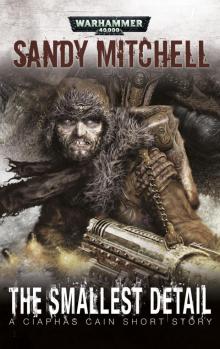 The Smallest Detail - Sandy Mitchell
The Smallest Detail - Sandy Mitchell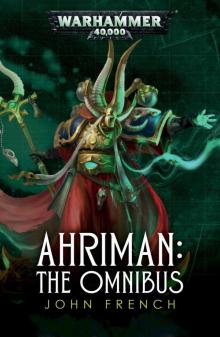 The Omnibus - John French
The Omnibus - John French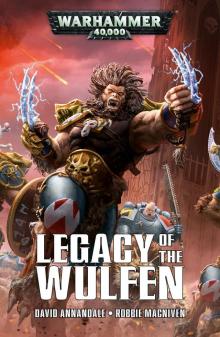 Legacy of the Wulfen - David Annandale & Robbie MacNiven
Legacy of the Wulfen - David Annandale & Robbie MacNiven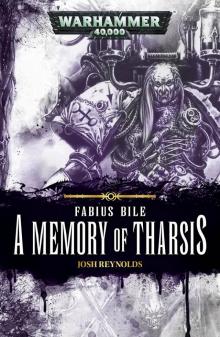 A Memory of Tharsis - Josh Reynolds
A Memory of Tharsis - Josh Reynolds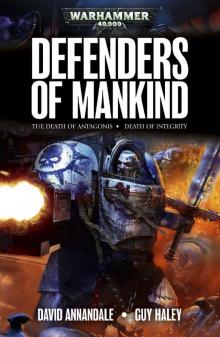 Defenders of Mankind - David Annandale & Guy Haley
Defenders of Mankind - David Annandale & Guy Haley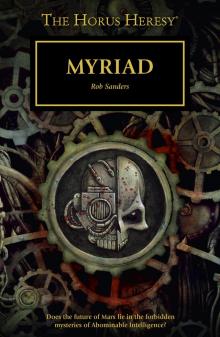 Myriad - Rob Sanders
Myriad - Rob Sanders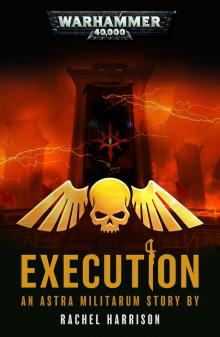 Execution - Rachel Harrison
Execution - Rachel Harrison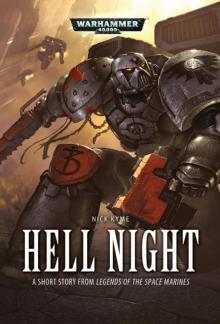 Hell Night - Nick Kyme
Hell Night - Nick Kyme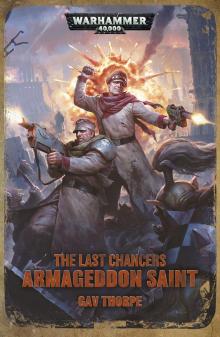 Armageddon Saint - Gav Thorpe
Armageddon Saint - Gav Thorpe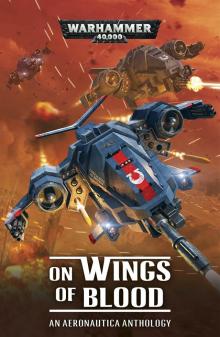 On Wings of Blood
On Wings of Blood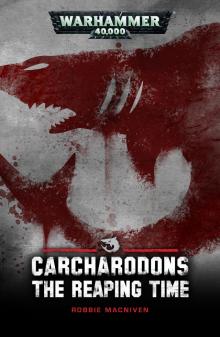 The Reaping Time - Robbie MacNiven
The Reaping Time - Robbie MacNiven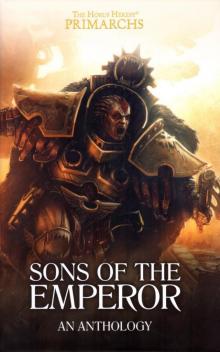 Sons of the Emperor
Sons of the Emperor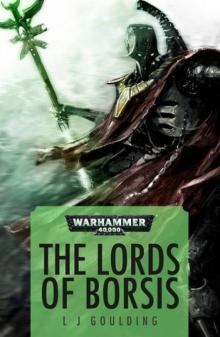 The Lords of Borsis - L J Goulding
The Lords of Borsis - L J Goulding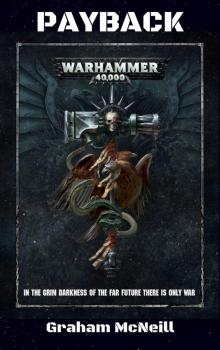 Payback - Graham McNeill
Payback - Graham McNeill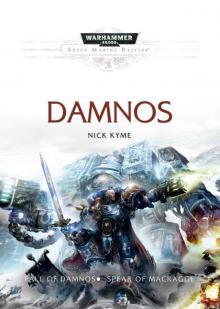 Damnos - Nick Kyme
Damnos - Nick Kyme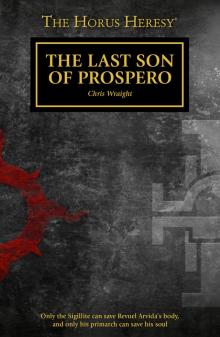 The Last Son of Prospero - Chris Wraight
The Last Son of Prospero - Chris Wraight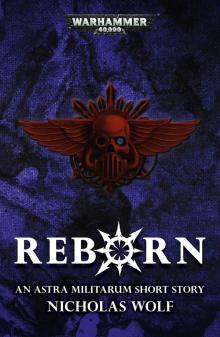 Reborn - Nicholas Wolf
Reborn - Nicholas Wolf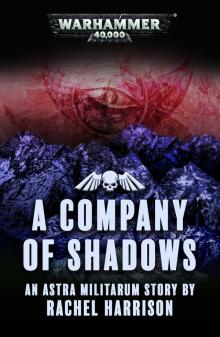 A Company of Shadows - Rachel Harrison
A Company of Shadows - Rachel Harrison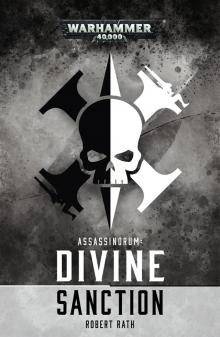 Assassinorum- Divine Sanction - Robert Rath
Assassinorum- Divine Sanction - Robert Rath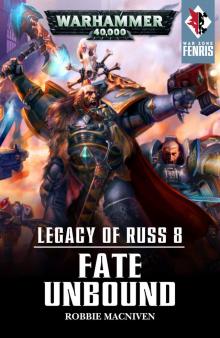 Fate Unbound - Robbie MacNiven
Fate Unbound - Robbie MacNiven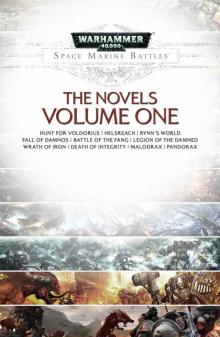 Space Marine Battles - the Novels Volume 1
Space Marine Battles - the Novels Volume 1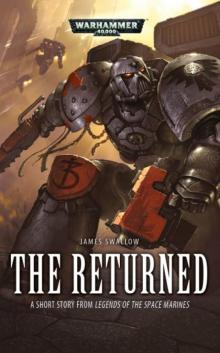 The Returned - James Swallow
The Returned - James Swallow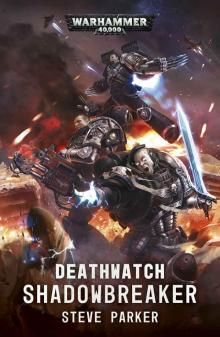 Shadowbreaker - Steve Parker
Shadowbreaker - Steve Parker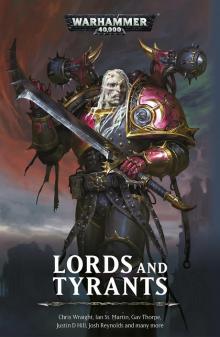 Lords and Tyrants
Lords and Tyrants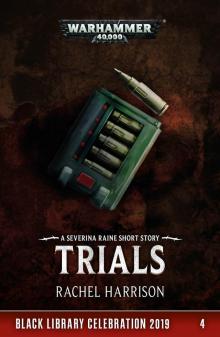 Trials - Rachel Harrison
Trials - Rachel Harrison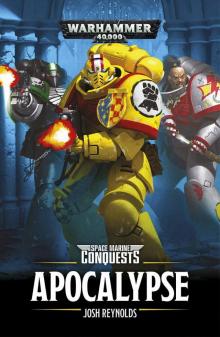 Apocalypse - Josh Reynolds
Apocalypse - Josh Reynolds The labyrinth - Richard Ford
The labyrinth - Richard Ford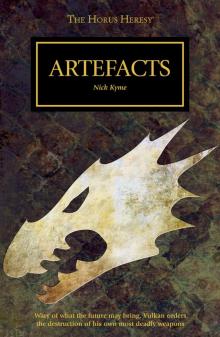 Artefacts - Nick Kyme
Artefacts - Nick Kyme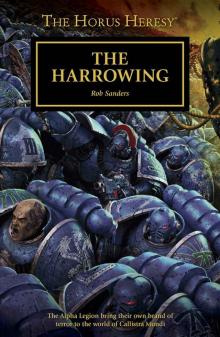 The Harrowing - Rob Sanders
The Harrowing - Rob Sanders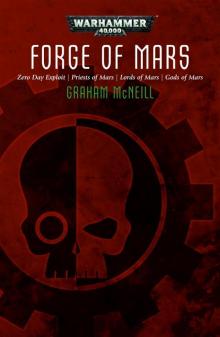 Forge of Mars - Graham McNeill
Forge of Mars - Graham McNeill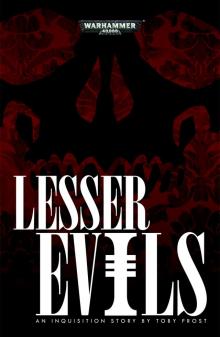 Lesser Evils - Toby Frost
Lesser Evils - Toby Frost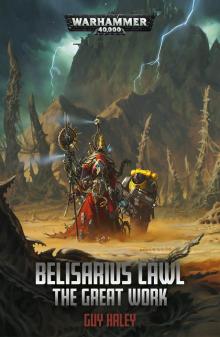 Belisarius Cawl- the Great Work - Guy Haley
Belisarius Cawl- the Great Work - Guy Haley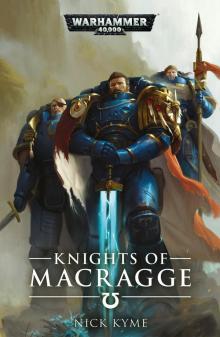 Knights of Macragge - Nick Kyme
Knights of Macragge - Nick Kyme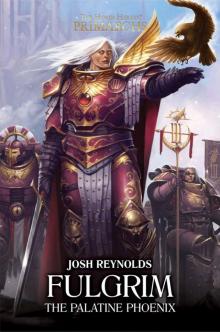 Fulgrim- The Palatine Phoenix - Josh Reynolds
Fulgrim- The Palatine Phoenix - Josh Reynolds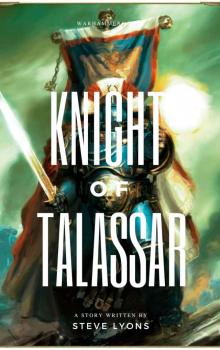 Knight of Talassar - Steve Lyons
Knight of Talassar - Steve Lyons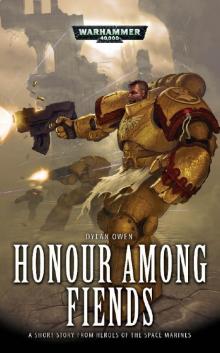 Honour Among Fiends - Dylan Owen
Honour Among Fiends - Dylan Owen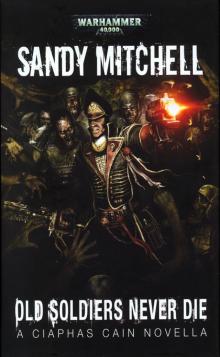 Old Soldiers Never Die - Sandy Mitchell
Old Soldiers Never Die - Sandy Mitchell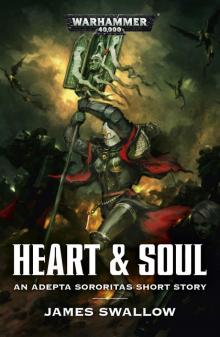 Heart & Soul - James Swallow
Heart & Soul - James Swallow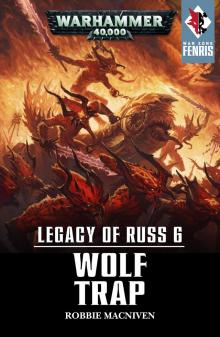 Wolf Trap - Robbie MacNiven
Wolf Trap - Robbie MacNiven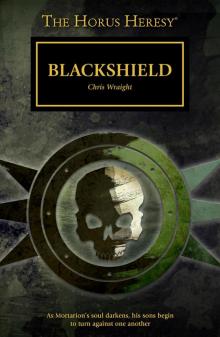 Blackshield - Chris Wraight
Blackshield - Chris Wraight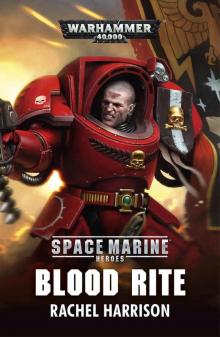 Blood Rite - Rachel Harrison
Blood Rite - Rachel Harrison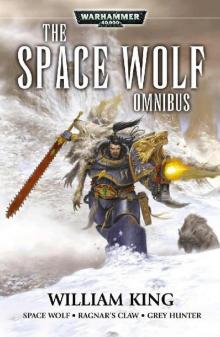 The Space Wolf Omnibus - William King
The Space Wolf Omnibus - William King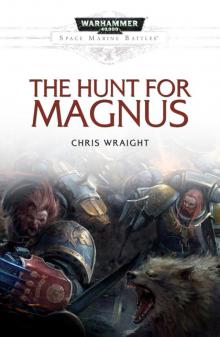 The Hunt for Magnus - Chris Wraight
The Hunt for Magnus - Chris Wraight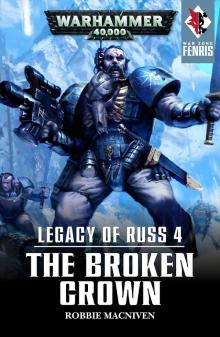 The Broken Crown - Robbie MacNiven
The Broken Crown - Robbie MacNiven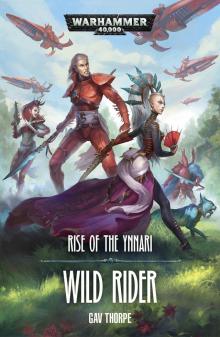 Wild Rider - Gav Thorpe
Wild Rider - Gav Thorpe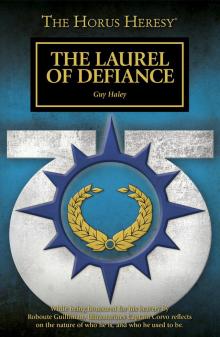 The Laurel of Defiance - Guy Haley
The Laurel of Defiance - Guy Haley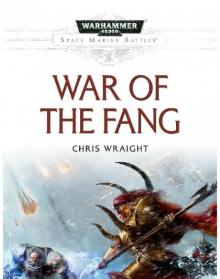 War of the Fang - Chris Wraight
War of the Fang - Chris Wraight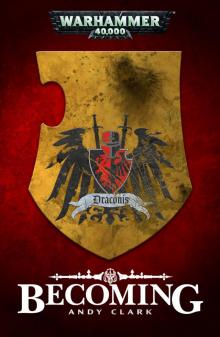 Becoming - Andy Clark
Becoming - Andy Clark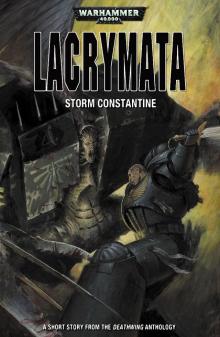 Lacrymata - Storm Constantine
Lacrymata - Storm Constantine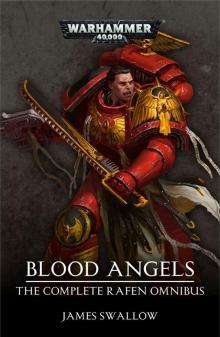 Blood Angels - The Complete Rafen Omnibus - James Swallow
Blood Angels - The Complete Rafen Omnibus - James Swallow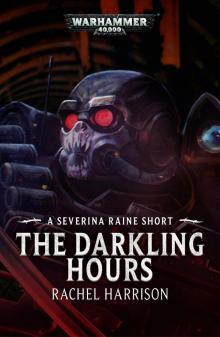 The Darkling Hours - Rachel Harrison
The Darkling Hours - Rachel Harrison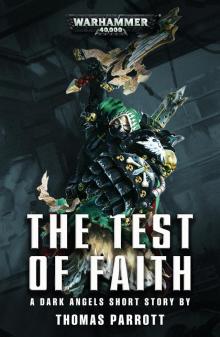 The Test of Faith - Thomas Parrott
The Test of Faith - Thomas Parrott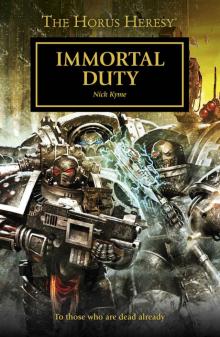 Immortal Duty - Nick Kyme
Immortal Duty - Nick Kyme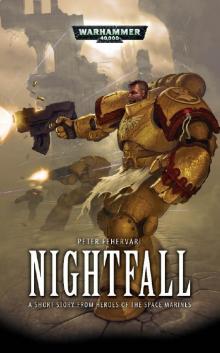 Nightfall - Peter Fehervari
Nightfall - Peter Fehervari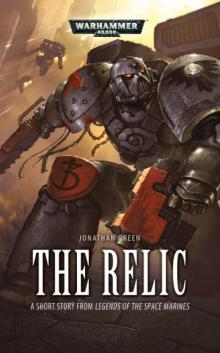 The Relic - Jonathan Green
The Relic - Jonathan Green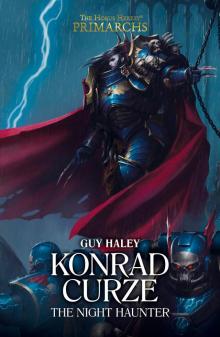 Konrad Curze the Night Haunter - Guy Haley
Konrad Curze the Night Haunter - Guy Haley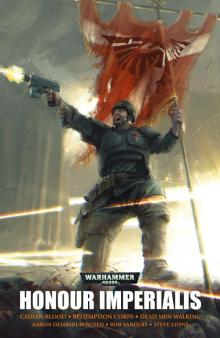 Honour Imperialis - Aaron Dembski-Bowden
Honour Imperialis - Aaron Dembski-Bowden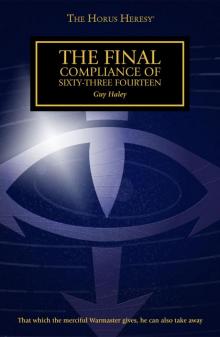 The Final Compliance of Sixty-Three Fourteen - Guy Haley
The Final Compliance of Sixty-Three Fourteen - Guy Haley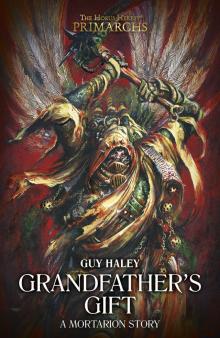 Grandfather’s Gift - Guy Haley
Grandfather’s Gift - Guy Haley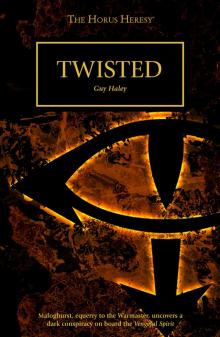 Twisted - Guy Haley
Twisted - Guy Haley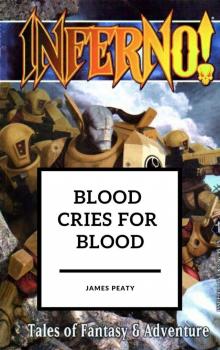 Blood Cries for Blood - James Peaty
Blood Cries for Blood - James Peaty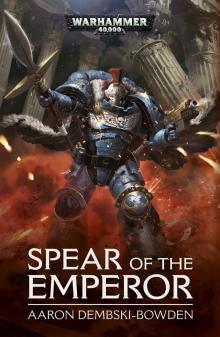 Spear of the Emperor - Aaron Dembski-Bowden
Spear of the Emperor - Aaron Dembski-Bowden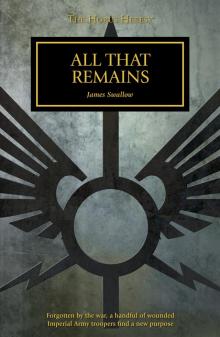 All That Remains - James Swallow
All That Remains - James Swallow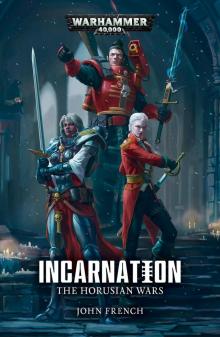 Incarnation - John French
Incarnation - John French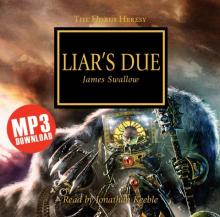 Liar's Due - Ben Swallow
Liar's Due - Ben Swallow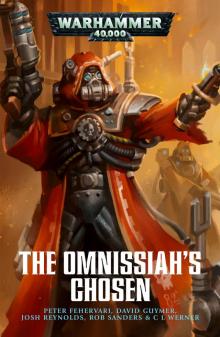 The Omnissiah's Chosen - Peter Fehervari
The Omnissiah's Chosen - Peter Fehervari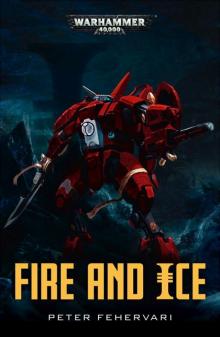 Fire and Ice - Peter Fehervari
Fire and Ice - Peter Fehervari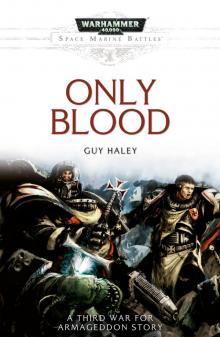 Only Blood - Guy Haley
Only Blood - Guy Haley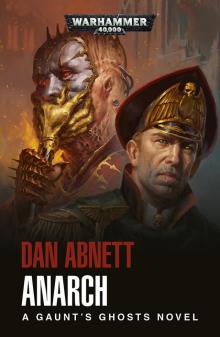 Anarch - Dan Abnett
Anarch - Dan Abnett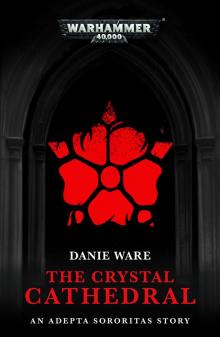 The Crystal Cathedral - Danie Ware
The Crystal Cathedral - Danie Ware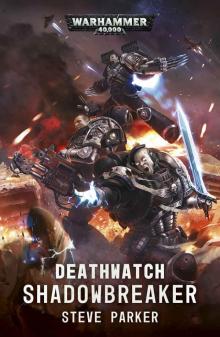 Shadowbreaker
Shadowbreaker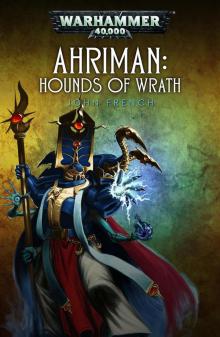 Hounds of Wrath - John French
Hounds of Wrath - John French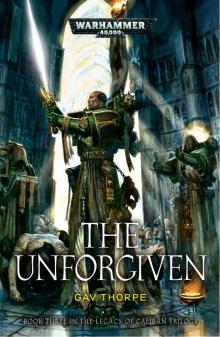 The Unforgiven - Gav Thorpe
The Unforgiven - Gav Thorpe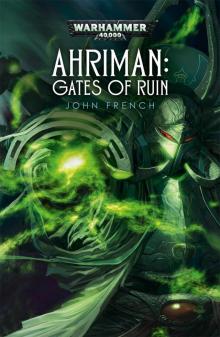 Gates of Ruin - John French
Gates of Ruin - John French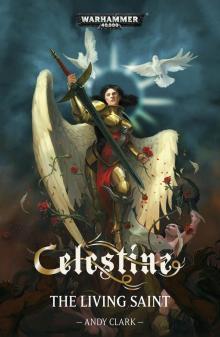 Celestine - Andy Clark
Celestine - Andy Clark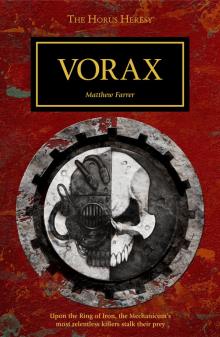 Vorax - Matthew Farrer
Vorax - Matthew Farrer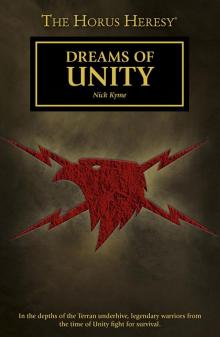 Dreams of Unity - Nick Kyme
Dreams of Unity - Nick Kyme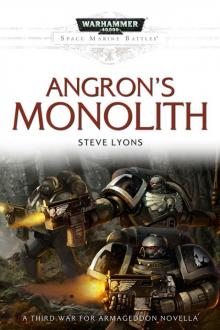 Angron's Monolith - Steve Lyons
Angron's Monolith - Steve Lyons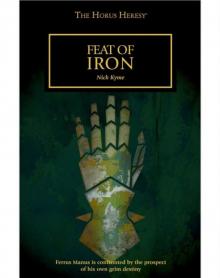 Feat of Iron - Nick Kyme
Feat of Iron - Nick Kyme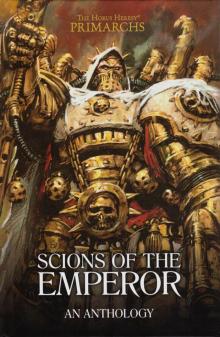 Scions of the Emperor
Scions of the Emperor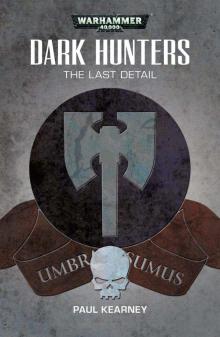 The Last Detail - Paul Kearney
The Last Detail - Paul Kearney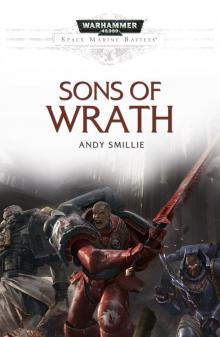 Sons of Wrath - Andy Smillie
Sons of Wrath - Andy Smillie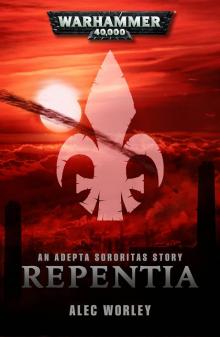 Repentia - Alec Worley
Repentia - Alec Worley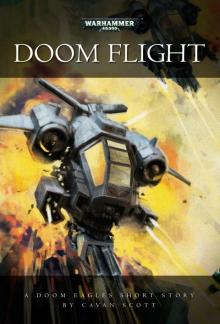 Doom Flight - Cavan Scott
Doom Flight - Cavan Scott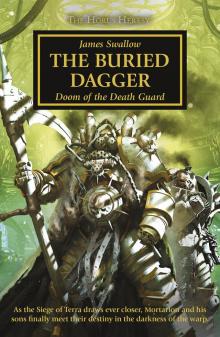 The Buried Dagger - James Swallow
The Buried Dagger - James Swallow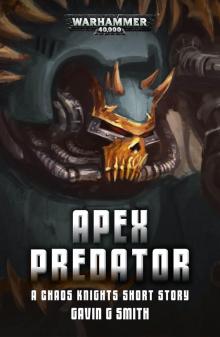 Apex Predator - Gavin G Smith
Apex Predator - Gavin G Smith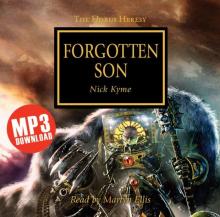 Forgotten Sons - Nick Kyme
Forgotten Sons - Nick Kyme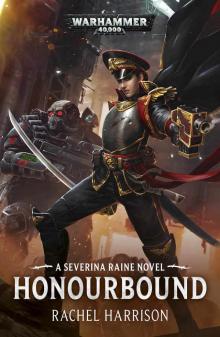 Honourbound - Rachel Harrison
Honourbound - Rachel Harrison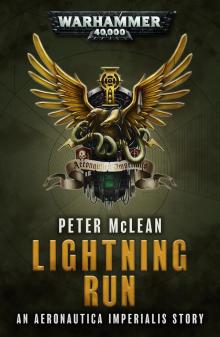 Lightning Run - Peter McLean
Lightning Run - Peter McLean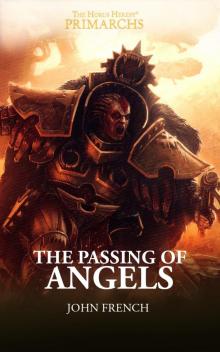 The Passing of Angels - John French
The Passing of Angels - John French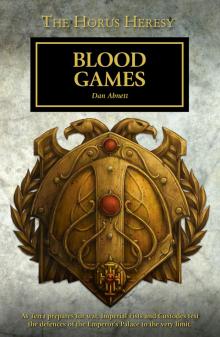 Blood Games - Dan Abnett
Blood Games - Dan Abnett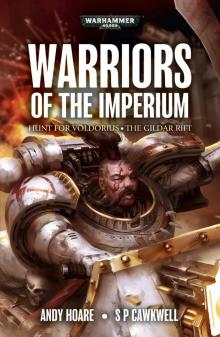 Warriors of the Imperium - Andy Hoare & S P Cawkwell
Warriors of the Imperium - Andy Hoare & S P Cawkwell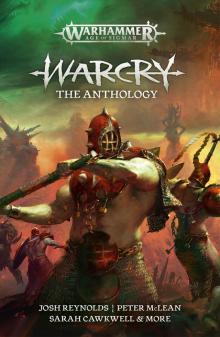 Warcry
Warcry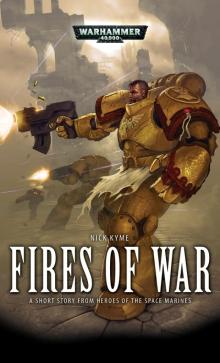 Fires of War - Nick Kyme
Fires of War - Nick Kyme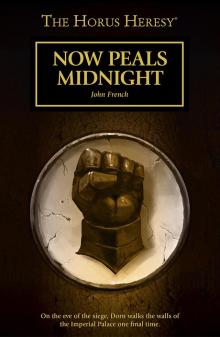 Now Peals Midnight - John French
Now Peals Midnight - John French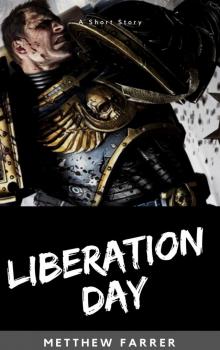 Liberation Day - Matthew Farrer
Liberation Day - Matthew Farrer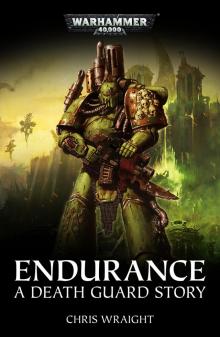 Endurance - Chris Wraight
Endurance - Chris Wraight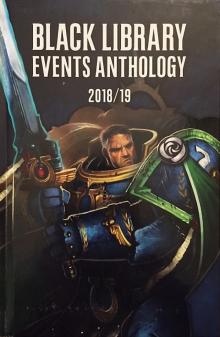 Black Library Events Anthology 2018-19
Black Library Events Anthology 2018-19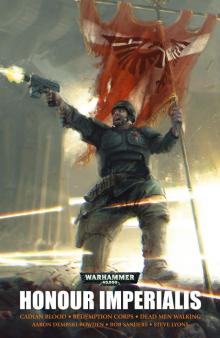 Honour Imperialis - Braden Campbell & Aaron Dembski-Bowden & Chris Dows & Steve Lyons & Rob Sanders
Honour Imperialis - Braden Campbell & Aaron Dembski-Bowden & Chris Dows & Steve Lyons & Rob Sanders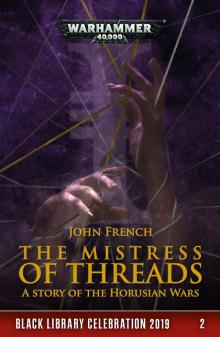 The Mistress of Threads - John French
The Mistress of Threads - John French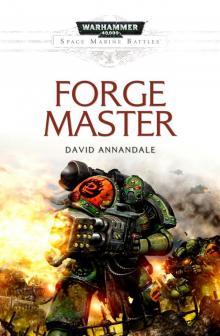 Forge Master - David Annandale
Forge Master - David Annandale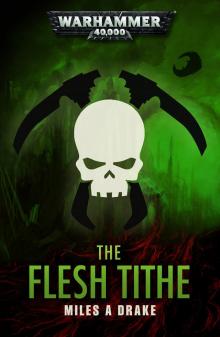 The Flesh Tithe - Miles A Drake
The Flesh Tithe - Miles A Drake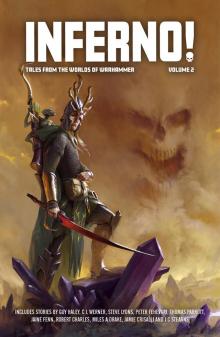 Inferno Volume 2 - Guy Haley
Inferno Volume 2 - Guy Haley Mercy of the Dragon - Nick Kyme
Mercy of the Dragon - Nick Kyme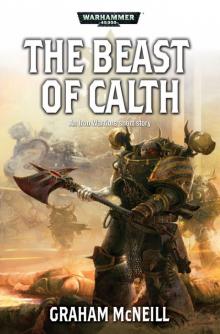 The Beast of Calth - Graham McNeill
The Beast of Calth - Graham McNeill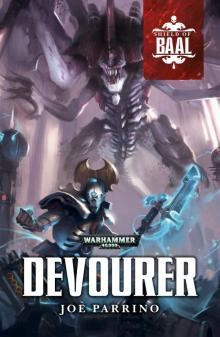 Devourer - Joe Parrino
Devourer - Joe Parrino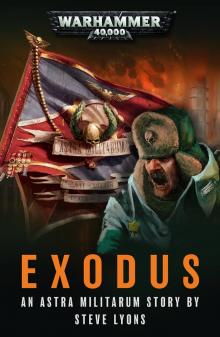 Exodus - Steve Lyons
Exodus - Steve Lyons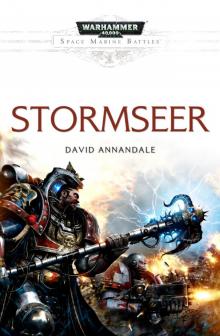 Stormseer - David Annandale
Stormseer - David Annandale Shadow Captain - David Annandale
Shadow Captain - David Annandale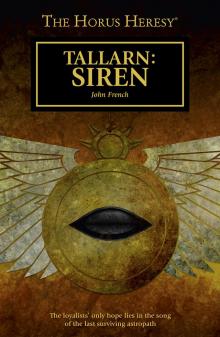 Tallarn- Siren - John French
Tallarn- Siren - John French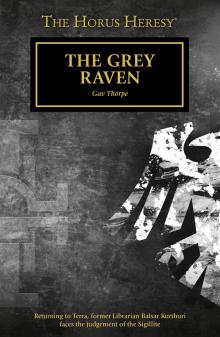 The Grey Raven - Gav Thorpe
The Grey Raven - Gav Thorpe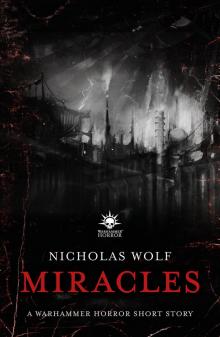 Miracles - Nicholas Wolf
Miracles - Nicholas Wolf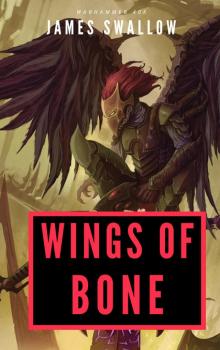 Wings of Bone - James Swallow
Wings of Bone - James Swallow